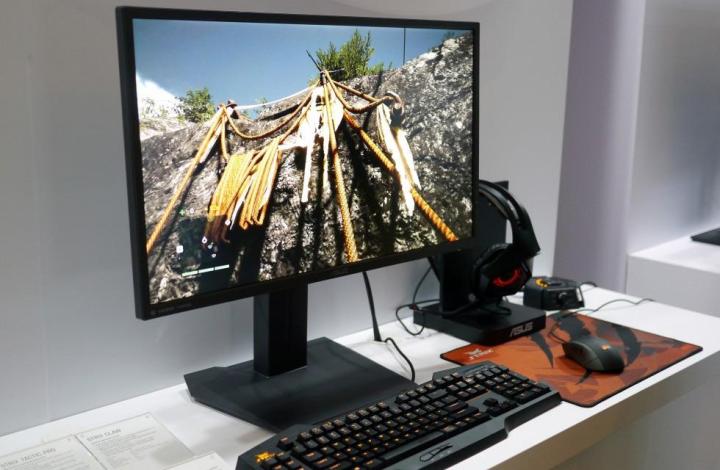
As always, this 27″ display comes with an obscure name – MG279Q – and although it’s not 4K, it does support the better-than-HD resolution of 2,560 x 1,440. It can also output that at a refresh rate of 144Hz despite the use of IPS panel technology. It’s also said to be able to adjust its refresh rate down to a minimum of 40Hz, which should help those attempting to run more intensive titles at 1440p on a single GPU.
However, the real killer technology that Asus is hoping will push this new display forward is AMD’s FreeSynnc, which should cut down on screen tearing without limiting your frame rates like V-Sync often does.
In terms of connectors, the MG279Q has a single DisplayPort and Mini-DisplayPort , as well as two HDMI and a single MHL 2.0 connector. It also has two USB 3.0 ports for those that don’t have enough already. There’s no price announced for it just yet, but TechSpot has it speculated for around $600 at launch.
The release date is expected to be sometime in the next couple of months, since the MG279Q was first shown off at CES this year – albeit with not quite as impressive specifications. When it does land, ASUS’ new display will join the likes of LG, BenQ and Acer, all of which have recently unveiled their own high resolution FreeSync displays.
Editors' Recommendations
- Acer’s Nitro XV2 is the fastest 1440p gaming display we’ve ever seen
- 4K is too hard and 1080p looks dull, so where are all the 1440p gaming laptops?




